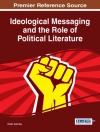How can the United States create the political will to address our major urban problems—poverty, unemployment, crime, traffic congestion, toxic pollution, education, energy consumption, and housing, among others? That’s the basic question addressed by the new edition of this award-winning book. Thoroughly revised and updated for its third edition, Place Matters examines the major trends and problems shaping our cities and suburbs, explores a range of policy solutions to address them, and looks closely at the potential political coalitions needed to put the country’s “urban crisis” back on the public agenda.
The problem of rising inequality is at the center of Place Matters. During the past several decades, the standard of living for the American middle class has stagnated, the number of poor people has reached its highest level since the 1960s, and the super-rich have dramatically increased their share of the nation’s wealth and income. At the same time, Americans have grown further apart in terms of where they live, work, and play. This trend—economic segregation—no longer simply reflects the racial segregation between white suburbs and minority cities. In cities and suburbs alike, poor, middle class, and wealthy Americans now live in separate geographic spaces.
The authors have updated the case studies and examples used to illustrate the book’s key themes, incorporated the latest Census data, and drawn on exit polls and other data to examine the voting patterns and outcomes of the 2012 elections. They have expanded their discussion of how American cities are influenced by and influence global economic and social forces and how American cities compare with their counterparts in other parts of the world. And they draw upon the latest research and case studies not only to examine the negative impacts of income inequality and economic segregation, but also assess the efforts that civic and community groups, unions, business, and government are making to tackle them.
Fully up to date and far richer and more provocative, this new version surpasses its previous editions and will continue to be an essential volume for all who study urban politics and care about our cities.
Cuprins
List of Tables and Illustrations
Preface
1. Place Still Matters
2. The Facts of Economic Segregation and Sprawl
3. The Costs of Economic Segregation and Sprawl
4. The Roads Not Taken: How Government Policies Promote Economic Segregation and Suburban Sprawl
5. From FDR to Obama: A Brief History of Federal Urban Policy
6. City Limits: What Can Motown Teach Us about Wealth, Poverty, and Municiple Finance?
7. Urban Politics Matter: Liberal, Progressive, and Conservative Cities
8. Regionalisms Old and New
9. Metropolicies for the Twenty-First Century
10. Crossing the City Line: A Metropolitics for the Twenty-First Century
Notes
Index
Despre autor
Todd Swanstrom is Des Lee Endowed Professor of Community Collaboration and Public Policy Administration at University of Missouri-St. Louis.












